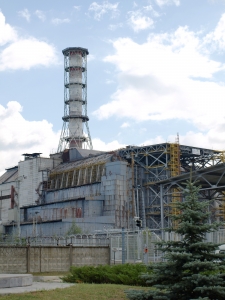According to a recent news article from AL Live, a worker at a nuclear power plant suffered an on-the-job injury and was exposed to radiation during the accident.
 Witnesses say worker was busy conducting an inspection of an area of the nuclear plant known as a dry well in anticipation of shutting down the number 2 reactor to refuel it. This particular dry well contained a depression, which is around 6 feet deep, and worker somehow fell into it. He fell into the hole and hit his forehead, causing a head injury.
Witnesses say worker was busy conducting an inspection of an area of the nuclear plant known as a dry well in anticipation of shutting down the number 2 reactor to refuel it. This particular dry well contained a depression, which is around 6 feet deep, and worker somehow fell into it. He fell into the hole and hit his forehead, causing a head injury.
Plant officials say it was in the depression where worker was also was exposed to radiation. A spokesperson for the nuclear power plant is saying worker was only exposed to a minor amount of radiation. The reason for the contamination was this dry well was in a layer of the reactor housing, which surrounds the actual Number 2 reactor.
After being pulled out of the hole, he was promptly decontaminated before he could be transported to the hospital. The plant described workers’ decontamination procedure as being successful. Following his decontamination, he was transported to a local hospital, where doctors say workers is in stable condition.
While the extent of worker’s head injury is not known, other than it apparently not being life threatening at this time, nuclear plant managers are claiming there is no “radiological safety consequence” due to the contamination to injured worker, first responders, or hospital workers.
A TVA spokesperson said incident was called a “very unfortunate event,” and TVA is reminding plant workers to be aware of potential hazards while working in areas they don’t normally access, except during a refueling.
This particular nuclear plant is one of the country’s largest and houses three nuclear reactors generating a total of 3,300 megawatts every year. That is more than enough to power 2 million residences.
An accident such as this can involve a considerable amount of medical bills and time lost from work, even assuming there are no additional consequences of being exposed to nuclear radiation. Head injuries are often very serious and may require advanced medical procedures, including surgical intervention to reduce swelling. It is also likely that treatment of radiation exposure requires a considerable of amount of medication and equipment not used every day, even at a busy emergency room.
As our Boston workers’ compensation attorneys can explain, a claim for serious injuries can be filed as soon as a serious injury with lasting consequences occurs, and, after an employee has missed at least five days of work, he or she can request compensation for lost wages.
While there is no question a detailed report will be made in the case of an accident at a nuclear power plant, this is not the case at many places of employment. It is essential you make sure an accident report is generated and medical professionals see you as soon as possible. Even if you do not think you need to take an ambulance, it is better to be on the safe side and accept the ride to the hospital. Basically, you should never refuse medical attention after an on-the-job injury.
If you are injured on the job in Massachusetts, call Jeffrey Glassman Injury Lawyers for a free and confidential consultation to discuss your workers’ compensation claim: (617) 777-7777.
Additional Resources:
Browns Ferry worker injured, exposed to radiation in Wednesday fall, March 26, 2015, AL Live
More Blog Entries:
LeFiell Mfg. v. Super. Ct.: Workers’ Compensation Exclusivity and Rare Exception, August 18, 2014, Boston Workers’ Compensation Lawyers Blog
 Massachusetts Workers Compensation Lawyers Blog
Massachusetts Workers Compensation Lawyers Blog

